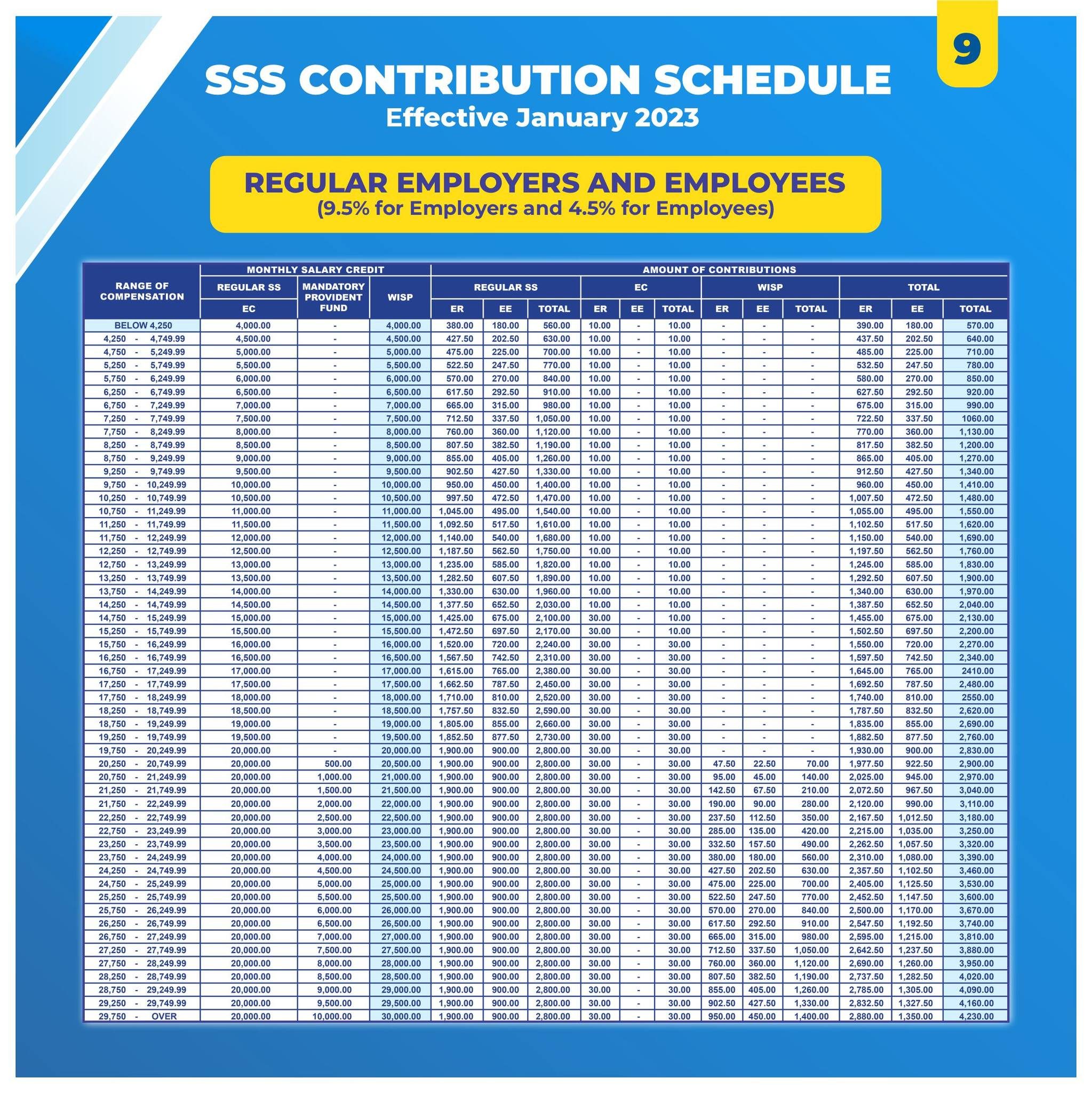GSIS, PhilHealth, Pag-IBIG salary deductions?

ANILA, Philippines – We’ve all been there – looking forward to a big pay-day only to find that salary deductions have eaten up your take-home pay.
With high inflation already threatening your money’s worth and news of rate hikes to SSS and PhilHealth monthly contributions, you might be wondering: just what are these deductions for anyway, and what’s in it for you?
Let’s look at the purpose and benefits of each, as well as how to compute monthly contributions.
What are the mandatory government deductions?
Under Philippine labor laws, all employees are required to become members of the Social Security System (SSS), Philippine Health Insurance Corporation (PhilHealth), and the Home Development Mutual Fund (Pag-IBIG). Government employees, on the other hand, become a part of the Government Service Insurance System (GSIS) rather than SSS.
SSS
The SSS exists primarily to give social security benefits, covering sickness, maternity, disability, old age, and death. Qualified members can also avail of salary, housing, business, and educational loans.
Persons belonging to the private sector, household helps, employees of foreign governments based in the Philippines, public utility drivers and operators, self-employed persons, farmers, fishermen, workers in the informal sector, and overseas Filipino Workers (OFWs) are all required to become members.
Voluntary members include the non-working spouse of an SSS member and members who are separated from employment.
Find more details about the SSS and its member benefits here.
GSIS
Similar to the SSS, the GSIS provides social security benefits for government workers. Among these are life insurance, retirement, separation, and employee’s compensation benefits. Members can also avail of multi-purpose loans, policy loans, enhanced emergency loans, enhanced pension loans, and pensioners emergency loans.
Membership covers all government workers except certain members of the judiciary and constitutional commissions, contractual employees, and uniformed members of the Armed Forces of the Philippines (AFP), the Philippine National Police (PNP), the Bureau of Jail Management and Penology (BJMP), and the Bureau of Fire Protection (BFP).
Find more details about GSIS benefits here and GSIS loans here.
PhilHealth
PhilHealth is mandated to provide universal health insurance coverage and healthcare services for all citizens of the Philippines. PhilHealth members receive financial assistance for medicine, hospital costs, and certain inpatient and outpatient procedures.
Members are classified as either direct or indirect contributors. Direct contributors are persons with the capacity to pay premiums, such as employees, self-employed individuals, and OFWs. Indirect contributors are all others who are not classified as direct contributors, such as indigents, senior citizens, and persons with disability; their contributions are subsidized by the national government.
Find more details about PhilHealth benefits here.
Pag-IBIG
The Pag-IBIG Fund provides a national savings and housing assistance program for all members. Qualified members can avail of housing loans, multi-purpose loans, and calamity loans. Besides its regular savings program, members can also participate in the Modified Pag-IBIG 2 special savings facility for higher dividends.
Membership in Pag-IBIG is mandatory for all persons who are covered by SSS or GSIS, as well as uniformed members of the AFP, PNP, BJMP, and BFP. Voluntary membership in Pag-IBIG is also welcomed.
Find more details about Pag-IBIG membership and benefits here.
How are monthly contributions computed?
Membership to each of these allows employees to enjoy government-mandated benefits. However, to avail of their full benefits, members must pay contributions regularly and actively.
Here’s how the employee share of these government monthly contributions are computed:
SSS
For SSS, the amount deducted is computed as a percentage of your monthly salary credit. The monthly salary credit is a figure that SSS assigns depending on the salary bracket you fall under.
However, for convenience, SSS has already computed the required contributions for all salary brackets. Refer to this SSS circular or the SSS contribution table below to find your required contribution.

First, check the “range of compensation” column to find where your monthly salary falls under. To find the employee’s share to be deducted from your salary, check the column marked “EE.”
Keep in mind that an SSS rate hike has taken effect starting this January 2023, raising the total monthly contribution to 14%.
GSIS
Similar to SSS, GSIS collects premium contributions from both the government employee and the government agency or employer to which he or she belongs.
| Base | Employee Share | Employer Share |
|---|---|---|
| Actual monthly salary | 9% of actual monthly salary | 12% of actual monthly salary |
The employee share of the contribution is 9% of his or her actual monthly salary.
PhilHealth
The current PhilHealth premium rate is 4% of your monthly basic salary. The monthly premium can range between P400 to P3,200 depending on your salary.
There is also an income floor and ceiling for the premium computation. For those earning 10,000 and below, the monthly premium is set at P400. Those earning P80,000 and above have their monthly premiums capped at P3,200.
Once you compute your monthly premium, the amount is then divided equally between you and your employer.
| Monthly Basic Salary | Monthly Premium | Employee Share | Employer Share |
|---|---|---|---|
| P10,000.00 and below | P400.00 | P200.00 | P200.00 |
| P10,000.01 to P79,999.99 | P400.00 to P3,200.00 | P200.00 to P1,600.00 | P200.00 to P1,600.00 |
| P80,000.00 and above | P3,200.00 | P1,600.00 | P1,600.00 |
Note that a scheduled rate hike to the PhilHealth premium rate was set to take effect in 2023, which would have bumped it up to 4.5%. However, President Ferdinand Marcos Jr. has ordered PhilHealth to suspend its increase, citing “prevailing socioeconomic challenges brought about by the COVID-19 pandemic.” (READ: Romualdez wants to give president power to suspend PhilHealth rate hike)
Pag-IBIG
For those with a monthly basic salary of P1,500 and below, the contribution rate is 1%. Those earning above P1,500 have a 2% contribution rate.
| Monthly Basic Salary | Employer Share | Employee Share |
|---|---|---|
| P1,500.00 and below | 1.0% of monthly basic salary | 1.0% of monthly basic salary |
| P1,500.01 to P5,000.00 | 2.0% of monthly basic salary | 2.0% of monthly basic salary |
| P5,000.01 and above | P100.00 | P100.00 |
The maximum Pag-IBIG contribution is capped at P100 per month once members have a monthly salary above P5,000. – Rappler.com
Source: FAST FACTS: What are SSS, GSIS, PhilHealth, Pag-IBIG salary deductions? (rappler.com)



